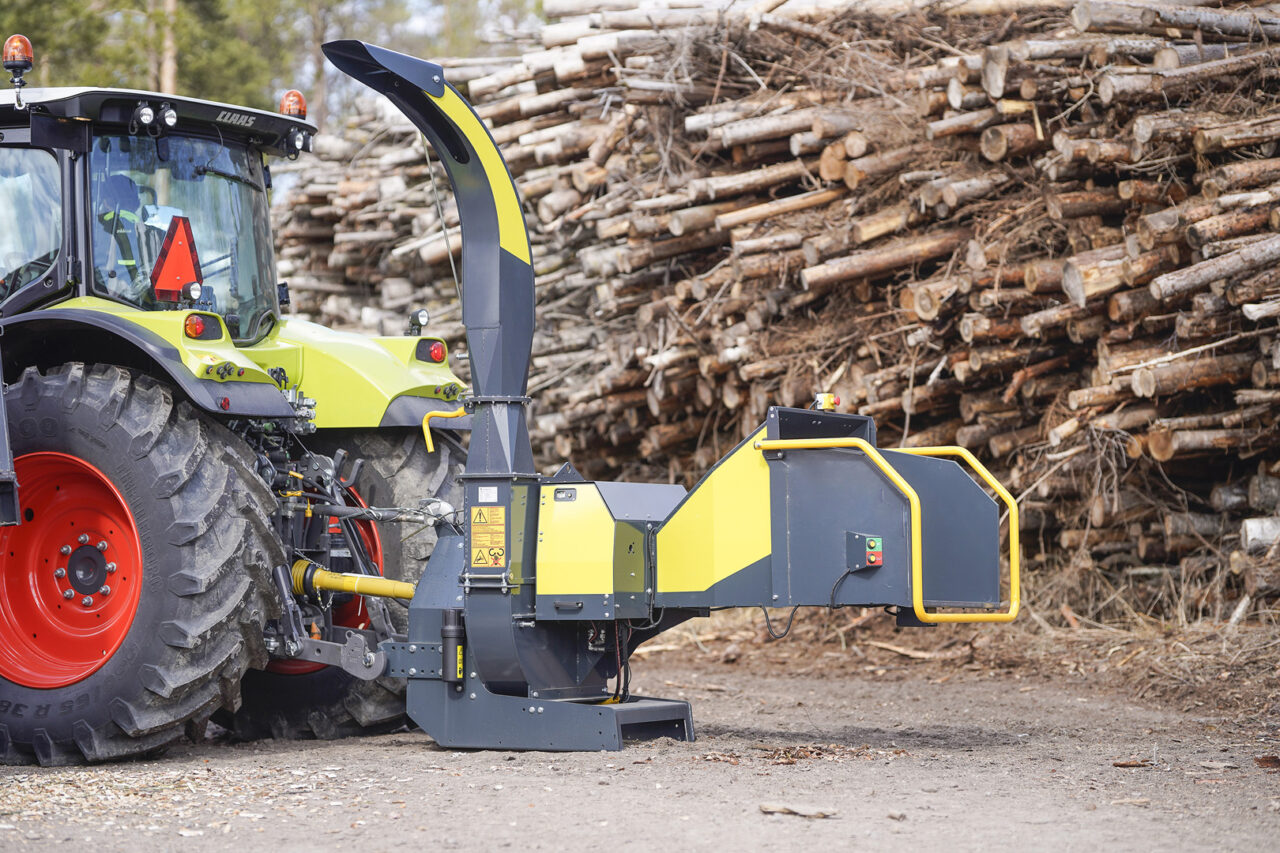Wood chips are a versatile resource that can be used for various purposes. While wood chips are commonly associated as a biomass source for renewable energy production and heating purposes, they can be used in several ways that make them valuable in many industries. They have a wide range of applications from landscaping and gardening to animal bedding and even building.

Wood chips are often a side-stream resource from the forest industry, but small amounts can also be produced in agricultural activities, for example when clearing new fields, tidying up bushes around field edges or clearing power lines after a weather incident. The generated twigs and loose branches can be chipped directly on the spot with the help of a wood chipper, and the chips can either be left on the ground as soil enhancement, or carried away for other purposes.
1. Mulch for landscaping and gardening
Wood chips are a great mulching option for landscaping and gardening, especially for young trees and shrubs. They can be spread around garden plants to help retain soil moisture by reducing evaporation and provide insulation to the soil, regulating temperature and protecting plant roots from extreme heat or cold. Wood chip mulch also effectively prevents weeds from growing and as it decomposes over time, wood chips enrich the soil with organic matter, improving its overall quality.
2. Ground cover for recreational areas
Wood chips can be used as a ground cover material for a variety of sports fields and playgrounds, as well as outdoor animal enclosures. In playgrounds, parks and other recreational areas, wood chips serve as a safety surface beneath swings, slides, and climbing structures thanks to their shock-absorbing properties that reduce the risk of injuries. Wood chips are a cost-effective alternative to rubber mulch, protecting the ground from erosion and offering natural aesthetics that blend well with outdoor environments.
3. Anti-slip material for roads
Wood chips can be used to prevent roads and walkways from becoming slippery in the winter. When used for anti-slip purposes, wood chips offer several benefits compared with the traditional crushed stones and sand, as they do not generate dust in the springtime and are easier to collect from the road. Thanks to their softness, they do not strain pets’ paws or puncture tyres. After collection, used wood chips can be burned or composted. On some sites, wood chips can also be left on the ground to decompose.
4. Erosion control
Wood chips can effectively control erosion in construction and landscaping projects. They create a protective layer that stabilizes slopes, prevents soil erosion, and mitigates runoff. This application is particularly useful in areas prone to heavy rainfall and soil erosion.
5. Water treatment and protection of water bodies
A few studies have been conducted in Finland where wood chips have been used to prevent eutrophication of natural water bodies. Experimental methods to treat municipal sewage and wastewater from food processing by using wood chips for the removal of fats and nutrients have also been developed in Ireland and in the USA. Traditionally, wood chips or small branches have been used instead of gravel in French drain systems.
6. Building material
The use of wood chips in various concrete and mortar products has been widely studied and commercial products including paving tiles and sound insulation are available in several countries. Replacing the concrete aggregate with wood material provides lightweight concrete products with good sound and heat insulation properties and a lower thermal expansion coefficient than conventional concrete. Replacing aggregate with wood chips is also a cost-effective alternative.
7. Animal bedding
Wood chips are a useful bedding material for the livestock industry and other farm animals, particularly favored by sheep. Wood chips provide a comfortable and hygienic surface for animals, helping to reduce the spread of diseases. Furthermore, they absorb moisture and odors, creating a healthier environment for the animals and their handlers.
8. Composting
Wood chips can be used in compost as an interlayer to provide aeration or composted as such, but since they are high in carbon, it is advisable to mix them with nitrogen-rich materials, such as manure, green plants or food scraps. They are also a great cover material option for dry toilets and processing of animal manure.
9. Flavoring in food smoking
Smoking foods with wood chips is a popular technique in the culinary world. Different wood varieties, like alder, oak or apple, impart distinct flavors to smoked meats, fish, and other products. Wood chips are first soaked in water and then added to a smoker or grill to infuse food with a smoky aroma and taste.
We offer wood chippers for every purpose
Wood chips are a renewable resource with diverse applications, and with the competitiveness of wood only growing in the future, they will continue to demonstrate their value in various industries and endeavors.
At Junkkari, we offer a range of top quality wood chippers that are based on a blade disc and manufactured in Finland from first-rate materials and components. We have 40 years and more than 10,000 machines of experience in their manufacture. Our wood chippers can be used on 17 to 43 cm thick trees, and the smaller chippers are ideal for landscaping purposes on the spot. In Junkkari chippers, the chip size can be adjusted according to the purpose of use, and all of our chippers produce even-quality chips that are safe to use, also in more demanding applications.
Remember to include durable and effective Junkkari chippers in your calculations! Discover our range of chippers here.